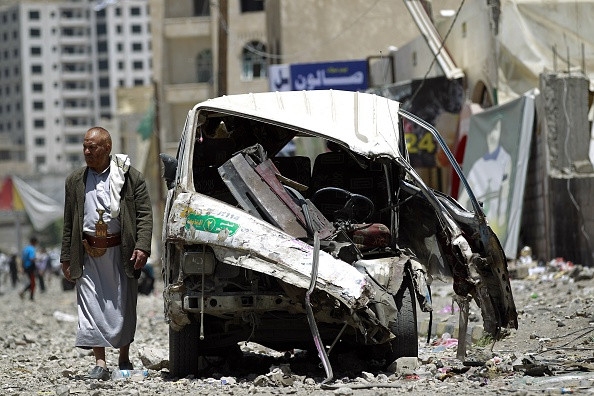Saudi Arabia's bombing campaign may be over but Yemen's crisis has just begun

It was little surprise that when Saudi Arabia announced the end of Operation Decisive Storm in Yemen late on 21 April, it branded the three-week bombing campaign a success. With almost 1,000 dead and a looming humanitarian crisis in Yemen, Riyadh is keen to stay positive.
But it is likely that only the Saudis will see the Yemen war as anything but a failure. The Houthi rebels it sought to push back into their northern heartland remain camped outside Aden, Al Qaeda in the Arabian Peninsula (AQAP) has been emboldened and remains in control or swathes of the country and tens of thousands of people are without food, water and medical supplies.
Meanwhile, Yemeni president Abdrabbuh Mansour Hadi remains in Riyadh with no immediate chance of returning to his country, let alone to the capital, Sana'a, which he fled earlier in 2015.
"What did it do for that Godforsaken country? Absolutely nothing," said Robert McFadden, a long-standing Yemen expert and senior vice president of the Soufan Group.
You have to say that the Saudis have played a role in precipitating this crisis
While Yemen has seen its fair share of bloodshed and political instability, McFadden said it has not faced a humanitarian crisis, even in the dark days of civil war during the 1990s.
The country imports as much as 90% of its food and has long suffered from water shortages but there has never been a situation when starvation was a serious prospect for Yemeni residents – until now.
The United Nations is estimating the cost of aid for Yemen following Saudi Arabia's bombing campaign could run to more than $300m while the International Committee of the Red Cross (ICRC) has warned the situation in Yemen was "catastrophic".
Not only has a Saudi blockade prevented the import of food and medical supplies, but air strikes have destroyed critical aid projects. "You have to say that the Saudis have played a role in precipitating this crisis," McFadden said.
Pride in foreign policy
But while international condemnation of the war in Yemen has been widespread and intensifying, in Saudi Arabia there has been a groundswell of support for Riyadh's campaign. In an interview with the BBC from Riyadh, Saudis spoke of their pride in King Salman's new proactive foreign policy, which has seen the kingdom involved in its biggest conflict since the first Gulf War.
The Saudis are trying to take the hands off this a little bit and try and let the guys on the ground do the fighting
That may be part of the reason for Saudi Arabia's abrupt announcement of the end of the campaign. Riyadh is winding down its war before it becomes embroiled in a messy conflict with the Houthis either in Yemen itself or along its vast and porous border with the country, which has already seen skirmishes between rebels and border police.
Michael Stephens, director of think tank RUSI, suggests another reason for the end of the campaign was strain on Riyadh's air force, which has flown hundreds of sorties and bombing runs over Yemen in recent weeks and is now feeling their effect.
Saudi Arabia always considered the operation a two-stage solution beginning with air strikes and followed by support for Hadi forces on the ground, he said. But the air strikes that hit Houthi positions in Yemen in the hours following the end of Operation Decisive Storm are also evidence that Saudi Arabia is not finished in the country.
"The Saudis are trying to take their hands off this a little bit and try and let the guys on the ground do the fighting. [It] is not a total cessation of air strikes, [...] they are looking at a longer term more sustained conflict," he said.
That is bad news for Yemen, where Houthi rebels and AQAP both control swathes of the country, forces loyal to president Hadi fight back in their stronghold of Aden and thousands live without food, water and electricity. Saudi Arabia's war may be winding down but Yemen's crisis is just beginning.
© Copyright IBTimes 2025. All rights reserved.




















